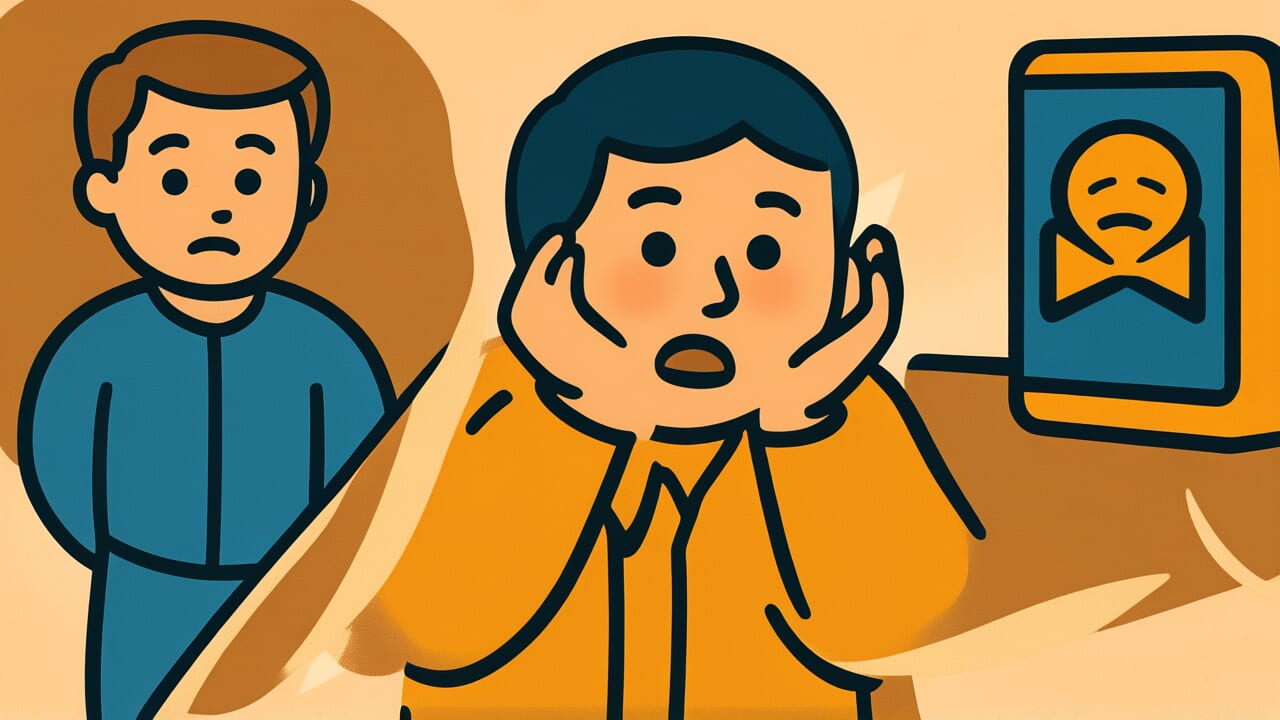How to Read “Lose money and lose face”
Sonshite hajikaku
Meaning of “Lose money and lose face”
“Lose money and lose face” is a proverb that describes suffering double misfortune. You not only lose money, but also lose your honor and credibility.
This proverb is used when an action or decision leads to the worst possible outcome. For example, someone tries to gain profit through dishonest means and fails.
They lose money and also lose the trust of people around them. Or someone makes a careless choice that damages both their financial situation and social standing.
In modern society, this phrase works as a strong warning. Someone posts something inappropriate on social media and loses their job.
Someone gets involved in a fraudulent business and loses both their wealth and social status. Cases where material loss and damaged reputation happen together are not rare at all.
This proverb powerfully warns against the danger of reckless actions driven by short-term gains.
Origin and Etymology
There are no clear historical records about the origin of “Lose money and lose face.” However, we can make interesting observations from how the phrase is structured.
First, notice how it combines two different dimensions of loss: “son” (loss) and “haji” (shame). “Son” refers to the loss of money or material benefits.
It has been used in business contexts since ancient times. “Haji,” on the other hand, relates to social evaluation and honor, concepts especially valued in Japanese culture.
By connecting these two with “shite” (and), the phrase expresses a terrible situation. You don’t just lose money—you also lose social credibility. It’s like being kicked when you’re already down.
Considering how merchant culture in the Edo period valued trust above all else, this proverb likely emerged as a warning about the worst situation in business.
Losing money alone is painful enough. But if you also lose public trust, recovering as a merchant becomes extremely difficult.
The expression “haji kaku” (lose face) is also interesting. It carries an active nuance—you bring shame upon yourself through your own actions, rather than passively experiencing it.
Usage Examples
- I bought a cheap knockoff brand item, but it was poor quality. My friends found out I was showing off, so I ended up losing money and losing face.
- I fell for an investment scam and lost my savings. Since I had bragged about it to everyone, I ended up losing money and losing face.
Universal Wisdom
“Lose money and lose face” has been passed down through generations because it sharply exposes a fundamental human weakness and the heavy price we pay for it.
Everyone has the desire to gain profit as easily and quickly as possible. This desire itself is not bad.
However, when that desire clouds our judgment, we make dangerous choices. We take shortcuts, avoid proper methods, and sometimes cross ethical boundaries.
Human society is harsh in that it never lets such failed choices end with just one loss. Losing money is a visible pain.
But what hurts more is losing trust, an invisible asset. Trust takes years to build but only a moment to destroy.
This proverb reveals a truth: real loss in life is compound and cascading. One mistake calls the next misfortune.
By the time you notice, the situation is beyond repair. Our ancestors understood this mechanism of human downfall.
That’s why they packed warning and lesson into these few words. True wisdom may be having the courage to stop before you fail.
When AI Hears This
Buying cheap goods automatically broadcasts information to the market: “I am someone who cannot judge quality.” This is the structure of adverse selection in game theory.
Consider the used car market. When good and bad cars are mixed together, and buyers cannot judge quality, sellers try to sell bad cars at high prices.
As a result, only bad cars remain in the market. Nobel Prize winner Akerlof called this the “lemon market.” The mechanism of “Lose money and lose face” is exactly this.
Choosing cheap goods sends a signal to others: “This person has low information-gathering ability.” In the next transaction, the other party judges, “It’s okay to recommend low-quality products to this person.”
In other words, one failure lowers your market reputation and increases the probability of continued losses.
Even more interesting is the function of shame as an emotion. Shame is a reaction to the public revelation that “I made a wrong judgment.”
This itself functions as a reputation cost. Financial loss and social credibility loss occur simultaneously because both grow from the same root: information asymmetry.
What you lose by being cheap is not just money, but your negotiating power in future transactions.
Lessons for Today
“Lose money and lose face” teaches modern people the importance of judging the quality of their life choices.
In today’s world, we are surrounded by countless options. Investments, side jobs, relationships, social media posts.
Each holds the potential to bring profit or recognition, but also carries risks. This proverb doesn’t just offer the simple warning that “good deals have hidden catches.” It teaches something deeper.
It means always being aware that your choices affect multiple dimensions. What you thought was just about money actually involves your reputation and trust too.
Just having that perspective greatly improves the quality of your decisions.
Specifically, before deciding anything, think from multiple angles: “If this doesn’t work out, what will I lose?”
Not just financial loss, but also trust from others, pride in yourself, and future possibilities. By making it a habit to weigh all of these, you can make truly valuable choices.
Wisdom is not learning from failure. It’s being able to stop before you fail.



Comments